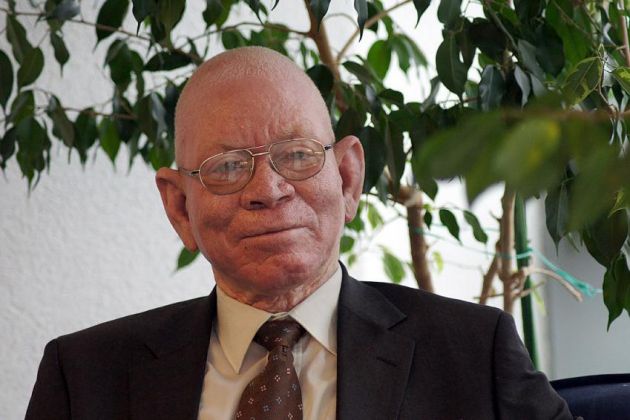Namibian Lutheran bishop appointed to country's presidential council

The presidential council of Namibian President-elect Hage Geingob has appointed Bishop emeritus Zephania Kameeta of the Evangelical Lutheran Church in the Republic of Namibia (ELCRN) as a member.
The nomination of Kameeta, who also serves on the Council of The Lutheran World Federation, was announced on February 2, the Lutheran World Federation said in a statement.
The bishop is known for promoting the efforts of his Lutheran church to eradicate poverty in country sandwiched between Angola and South Africa.
When Namibia became independent of South African rule in 1990, Kameeta was elected as a lawmaker for the South West Africa People's Organization, which has ruled the country from that date till the present.
He became its first Deputy Speaker. Between 2002 and 2013 Kameeta was bishop of the ELCRN. He also serves on the council, the main governing body of the LWF.
When a government-appointed commission called for a universal grant in Namibia in 2002, the Namibian church helped form the Basic Income Grant coalition known as BIG.
BIG now includes other civil society organizations advocating for social service support as part of national policy.
The coalition pioneered the BIG initiative in 2006 with a two-year pilot project for 900 people in the impoverished community of Otjivero-Omitara, 100 kilometers (65 miles) from the capital Windhoek.
The identified families received a monthly income of 100 Namibian dollars (US$8.65) a person head to reduce poverty and inequality and foster economic development.
The coalition's reports about the project's impact indicated that the initiative cut malnutrition rates from 42 percent to 10 percent, while school attendance improved and children attended class with cleaner and better uniforms.
The goal is to get the Namibian government to take on such a program nationally.
The BIG program has its critics who claim that some recipients spent the money on alcohol.
Kameeta was, however, quick to defend it, stating, "I know there are people who do not want to let go of the past and try to justify their vested interests by all means. These are not new people, nor is their rhetoric new."
Namibia is a mineral-rich country of 2.1 million people but has big economic inequalities. An estimated 75 percent of its population lives below the poverty line and two-thirds rely on subsistence agriculture.
Before Namibia's independence Kameeta was arrested and imprisoned by the South African authorities. Recently he has served as chairperson of Namibia's Social Security Commission.
